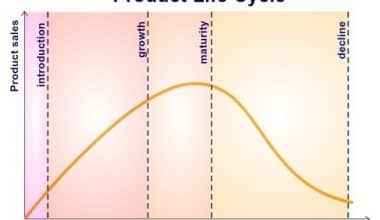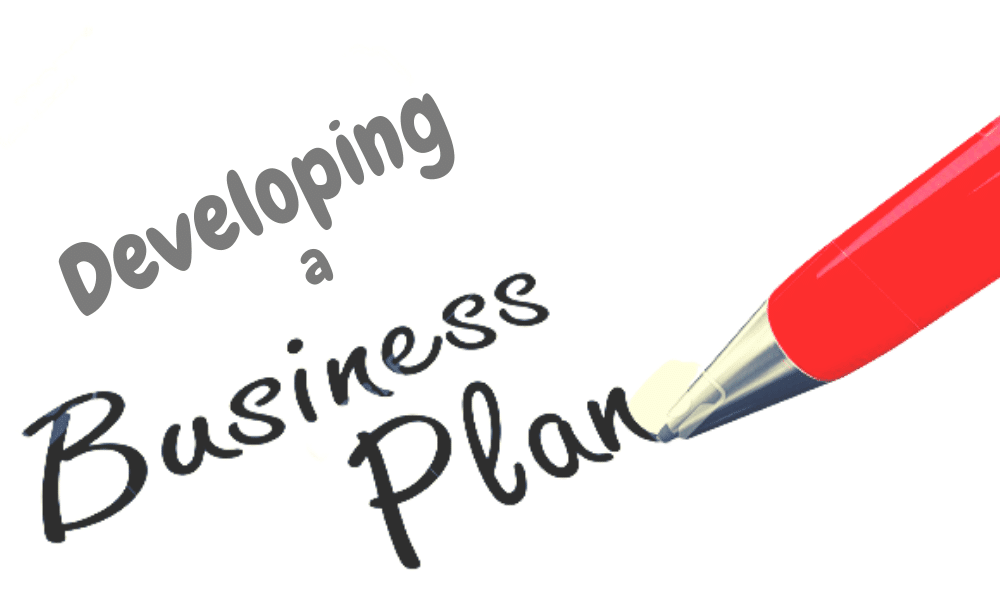Professionals are turning to social media to give tips and unique insights into their fields. Building a strong personal brand strategy is one of the best things you can do if you want to succeed in your job. It will assist you in networking, acquiring industry trust, and distinguishing yourself from others in your sector. Furthermore, having a personal brand statement allows anyone employers, consumers, clients, or contacts to quickly determine whether they want to work with you or listen to what you have to say. The advantages of developing a personal brand statement are hard to argue with at this point, and we’ll discuss why having one is so crucial today in this post.
Personal Branding Statement
Your personal brand statement is essentially a catchphrase that describes your expertise and distinguishes you from others. It gives folks a fast overview of what you can accomplish so they can see how you can help them. And if it’s memorable enough, that’ll be how people recognize and remember you.
Coming up with a compelling personal brand statement might be difficult. It must be powerful, descriptive, succinct, and memorable all at the same time. People reading your statement should be able to tell exactly what you can perform and what your areas of expertise are. It should also pique their interest and entice them to learn more about your services.
To effectively communicate your message, you must carefully select the appropriate words and organize them in the appropriate order. Above all, your personal brand statement should mirror the identity and values of your company. In other words, it should reflect who you are and what you can do.
While we could go on and on about what you need to do to develop a strong personal brand statement, the best way to learn is by looking at examples.
Personal Brand Statement Examples
It takes time and effort to develop a personal brand. And your brand statement is crucial for capturing the attention of your target audience. I’ll show you around a few instances in this part.
I purposefully left out well-known individuals such as Oprah Winfrey and Gary Vee. Instead, I dove into the weeds and collected a list of specialized websites and business owners who are nailing their own brand statements. The first one is seen below.
#1. Carol Tice
Carol Tice is a seasoned freelance writer who founded Make A Living Writing to assist other writers. “Practical Help for Hungry Writers,” her website tagline, will appeal to her target audience. Because of a lack of effective advice, most ambitious authors become perplexed when they begin their creative business professions.
Carol has chosen each word in her statement above with care, and it speaks directly to anyone who could benefit from her writing advice.
#2. Marie Forleo
Marie Forleo is well-known for MarieTV, where she interviews entrepreneurs, among other things. She is a driven entrepreneur whose motivational remark, “The World Needs That Special Gift That Only You Have,” grabs the attention of a browser.
It’s a strong method to speak to those ambitious creatives and entrepreneurs that believe in themselves (her target demographic). Marie is an entrepreneur as well as an inspirational figure and life coach. Her brand statement also has implications for all the other personas she assumes.
#3. Nomadic Matt
Matt’s website is full of travel advice. And in his personal brand statement, he tackles his audience’s primary pain points: they want to travel “smarter,” “cheaper,” and for “longer” periods of time.
His blog contains information and resources that can assist you in travelling more. Matt has done an excellent job of keeping passengers from becoming overwhelmed by endless internet research. And, with his comment above, he effectively brings out the main advantages that his website may provide.
Also, after his personal brand statement, he asks, “Where do you wish to go?” It performs an excellent job of prompting visitors to take action on its website (by conducting a search) as soon as they arrive.
#4. Aaron Orendorff
One of my favourite content creators is Aaron Orendorff. He develops very incredible material and has worked with a slew of well-known companies. His tagline sums up his expertise perfectly: “Saving the world from terrible material.”
Aaron’s target demographic is primarily B2B business owners. As a result, on his homepage, he specifies that he generates “B2B content strategy” and puts out the top benefits of his content: traffic, qualified leads, and scalability, in addition to the above tagline.
#5. Pat Flynn
Pat Flynn is a well-known figure in the world of passive income. His income reports have been a big success, demonstrating that a passive business can be built.
Pat extends a helping hand to new visitors to his site, SmartPassiveIncome.com, with the slogan, “Let Me Help You Build A Passive Income-Driven Online Business.” Many ambitious entrepreneurs fantasize of generating passive income. With Pat’s smug visage next to his offer of assistance, many of the prospects will get off to a terrific start with his brand.
#6. Thomas Frank
College Info Geek was founded by Thomas Frank to assist college students. And, as shown above, he neatly places it front and centre on his website’s homepage. “Become A Better Student,” his personal brand statement states.
Anyone interested in being more productive can benefit from the learning approaches and other resources given on the site. In the little section after his major statement (by using the words “even if you’re not in college”), Thomas clarifies the same point.
#7. Tony Robbins
Why not combine our list with the expertise of a well-known life coach? Most people who are interested in self-improvement are familiar with Tony Robbins. “Transform Your Life” is his own brand statement, which is simple and inspiring.
It speaks directly to the reader and makes a convincing assertion to catch their attention. It’s then followed by a brief explanation of how to attain the massive transformation goal (the second line reads, “narrow the gap between where you are today – and where you want to be”).
Isn’t that personal branding advice from a life coach?
#8. Sujan Patel
There are just too many marketers with promised results out there. They frequently come across as either overly technical or overly sales. If you work as a marketing consultant, you must appeal to business owners. Sujan Patel is a good example of this.
He lists “Growth and Content Marketing” beside his cutesy smile in the image above. A ‘What I do’ section can be found by scrolling below. I’m considering his personal brand slogan to be “I Grow Companies.”
It’s straightforward and will appeal to any entrepreneur looking to expand. He also mentions his marketing firm, which handles growth projects.
#9. Adam Enfroy
Okay, Adam is a relative newcomer to the SaaS world. For the past three months, he’s been guest writing nonstop and making a strong case for his personal brand. “Blog Like a CEO, Not a Writer,” he says on his website, a captivating pitch that precisely captures the distinct taste of his personal brand.
Any blogger who enjoys writing (and most bloggers do…) will be captivated (and even outraged!) by the statement.
Adam makes a compelling case for treating your blog like a company and making decisions accordingly in order to achieve faster development. In the second line, he justifies his daring declaration with social proof and figures. Overall, it succeeds in attracting a reader’s interest in the crowded make money blogging’ area.
Hopefully, those examples have sparked your imagination, and you’re on your way to creating your personal brand statement.
Why is a personal brand statement important?
A strong personal brand statement may help you stand out from the crowd, get people to remember you, network and uncover opportunities for job advancement, and expand your audience or client base.
Having a personal brand statement is an important element of branding and marketing and can be critical in obtaining and maintaining professional success, whether you’re a job seeker, freelancer, entrepreneur, or employer.
Because the majority of professionals with a strong brand identity have an established web presence, personal branding is also a wonderful way for established industry professionals to locate opportunities to participate in speaking engagements and professional networking events.
Personal brand statements, which can be displayed as an objective statement on your professional resume, website, portfolio, or LinkedIn profile, are the ideal platform for showing your understanding of a certain firm or your industry experience.
Writing a strong personal brand statement is critical if you want to be recruited, land a large job interview, receive a promotion, extend your professional network, and boost your chances of overall career success.
How Do You Write a Personal Brand Statement?
It can be challenging to draft a personal brand statement that is ideal in every way and yet highly successful. Your personal brand statement is, in essence, a catchphrase that encapsulates some aspect of your expertise as well as what sets you apart from other people. Those who read your statement ought to have a clear understanding of what you are capable of doing and where your expertise lies. In order for your message to be effectively conveyed, you need to carefully select the appropriate words and arrange them in the appropriate manner.
What is a Strong Personal Statement?
Personal statement structure
Put the most important information first in your personal statement (for example, why you’re applying for the role and what makes you suitable). Mention any skills and experience you have that are relevant to the job you’re applying for. Put the most important information first in your personal statement. Conclude by providing a brief summary of the objectives you have for your working life.
How Do You Write an Impactful Personal Statement?
The majority of personal statements should include particular paragraphs, such as why the applicant is interested in the program, what attributes the applicant possesses that connect with the program and any interests that are relevant to the program. Keep in mind that a personal statement should only ever be about you and not anyone else.
How To Craft An Engaging Personal Brand Statement
You may have figured out that your personal brand statement is only a few phrases long by now (and is punchy). It’s not a long-term project like your life purpose, job goals, or personal mission. Rather, the statement attempts to answer (mainly) the following questions:
- What work do you do best?
- Whom do you help (your target audience)?
- What’s your unique differentiator?
Now, here is a 5-step process you can use to create a memorable statement for your personal brand.
#1. List Your Key Attributes (Then, Filter The Unique Ones!)
Obtain a piece of paper (or open a new Google doc). Also, make a list of your most important professional and business qualities. The statement discusses “what you do” that no one else does, yet it begins by listing all of your characteristics and skills.
For example, if you’re good at understanding search engines and assisting startups with scaling, you may mention technical SEO, growth, startup marketing, marketing technology, and so on as critical traits.
The next step is to identify the distinctive differentiators that set you apart from the hundreds (if not thousands) of other professionals who do the same work.
Kaleigh Moore, a freelance writer, for example, is quite detailed on her homepage (which also differentiates her services). She says she writes “blog content” for “Ecommerce platforms” and “integration software.”
How many writers do you know that specialize in writing on Ecommerce? Her message profoundly resonates with her target audience, which brings us to the second step:
#2. Define Your Audience
You can’t please everyone all of the time. If you go too broad, the people with whom you might work may think of you as just another generalist. It makes sense to target the industry where your skills will be directly applicable. When you lose relevancy, you lose a prospect’s attention.
I’ve gone into great depth on the value of aiming for a 1,000-person audience, as well as practical measures to reach that goal.
It’s worth noting that some skills may experience a sharp increase. As a result, they have the potential to become enormously relevant to specific industries. As a result, it can make sense to look for a job in a field where your existing talents are in great demand.
Writing long-form content, for example, is one of my favorite things to do. And I discovered that it has suddenly become sought-after expertise among SaaS companies and marketing firms. That’s when I decided to modify the pitch on my homepage as well.
I’m not alone. Look at the number of results in the screenshot below for the phrase “long-form content writer for SaaS.” Many reputed writers have jumped on the opportunity and offer long-form content services to SaaS.
Goes to show the importance of defining your audience and clearly stating your skills relevant to them, front and center, aye?
#3. Stay Authentic
I turn away from Twitter bios that include the phrase “marketing guru” in any form. Self-proclaimed specialists (including ninjas, samurais, and thought leaders) are often snake oil merchants on the internet.
When writing your personal brand statement, avoid utilizing superlatives such as “market leader,” “best,” or anything similar. Such claims should be backed up with evidence.
Also, the brand statement isn’t meant to be a CV; thus, it’s merely meant to pique prospects’ interest in your professional profile. Your CV should contain a laundry list of professional accomplishments.
Additionally, utilizing jargon and an excessive amount of technical text will only serve to alienate your audience. Don’t use titles that are too elaborate. Allow your audience to determine how wonderful you are. On his webpage, Mark Manson (author and blogger) makes the following pitch.
Notice how he expresses both his personal and professional ideas about his work while allowing the reader to judge for themselves.
Staying authentic and not overselling yourself is the way to go in the age of social media. Just inform and inspire your audience with complete honesty.
#4. Make It Crisp And Memorable
Your personal brand may go a long way if you can make your job sound intriguing and easy to remember. Because everyone is short on time, you’ll want to keep it brief and sweet. You may also put your assertion to the test during networking events and conferences to see who comes out on top.
For example, Ramit Sethi (author and entrepreneur) put his responses to the question “What do you do?” at the bar to the test. He discovered that the response “I’m an author” elicited twice as much curiosity as the response “I’m a writer.”
There’s no proven formula to come up with an insanely creative and sticky tagline. It’s about coming up with MORE ideas and testing the best ones. To warm your brain, you can key a term related to your profession inside the slogan generator.
#5. Start Promoting Yourself
Now that you’ve chosen a personal brand statement, it’s time to unleash it on social media, guest posts, and your other brand touchpoints. It’s crucial that you stay consistent in your branding.
However, it’s okay to vary the statement as per the etiquette of the social platform. For instance, Nomadic Matt uses a bunch of adjectives to define what he does on Twitter. Alongside, he mentions that he’s the author of a book and that he helps people “realize their travel dreams – without breaking the bank.”
Prospects who are interested in Matt’s bio above may visit his website, but they will not be disappointed by his assertion that “travel smarter, cheaper, longer.” The reason for this is that they have kept their promise of “realizing their vacation aspirations.”
What is a Good Opening Sentence for a Personal Statement?
The phrase “From a young age I have always been interested in/fascinated by…” was used by 1,179 students, making it the most common opening. Other openings on the list include “For as long as I can remember I have…” (1,451 students), “I am applying for this course because…” (1,370 students), and “I have always been interested in…” (… students). The most common opening was “From a young age I have always been interested in/fascinated by…” (
What is a Catchy Opening Sentence?
Start with the punch line. A good hook could also be a question or a claim anything that will elicit an emotional response from the reader. Another way to think about it is that a good opening sentence is a thing that you don’t think you can say, but that you still want to say. For example, “This book will change your life.”
What are the Main Points of Personal Branding?
The 6 Components Necessary for a Profitable Personal Brand
- Authenticity
- Point of view
- Show up consistently
- Storytelling
- Expertise
- Your network
Conclusion
It’s fantastic to develop knowledge that sets you apart from your competitors. However, you must be able to recall what you do and how you vary. To create a great personal brand statement for yourself, use the nine personal profile samples and the step-by-step procedure. Keep in mind that the statement is a live entity. You should review it at least once a year to reflect on your professional development.
FAQ
What are the 5 A's of personal branding?
The five Ps are: Personal, Pointed, Purposeful, Prioritized, and then ultimately (broadly defined, if you wish it to be) Profitable.
What are the 3 C's of branding?
Building a strong brand is an arduous task under constant attack by three challenges: cash, consistency, and clutter, also known as the three Cs of branding.
Are brand assets?
Brand assets are elements, such as a colour scheme, jingle or font, that help identify a specific brand. These elements become brand assets only when customers associate them with a brand. If an element leads the audience to a different but similar brand, that element is not an asset.






